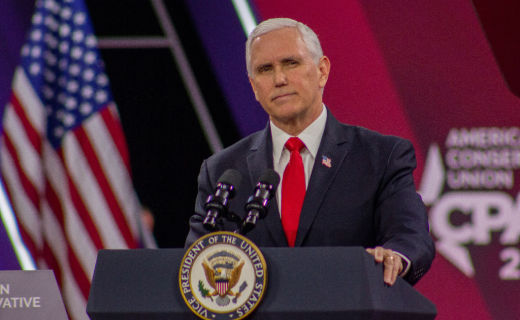Politics
Mike Pence Makes Drastic Move To Pay Off Campaign Bills With Public Funds

In a bid to address his campaign’s financial challenges, former Vice President Mike Pence is reaching into a nearly forgotten toolkit. Pence officially applied for public financing for his presidential primary campaign, a step not taken by a Republican contender in over a decade according to The New York Times. Should his application succeed, it would mark a significant shift in campaign finance dynamics, especially for a figure like Pence, who has previously navigated the higher echelons of U.S. politics without such measures.
Since the post-Watergate reforms, presidential candidates have had the option to tap into federal funds for their campaigns, albeit at the cost of adhering to stringent spending caps. These caps have largely deterred contemporary candidates, given the astronomical costs associated with running a competitive national campaign.
The public financing program, designed to curb the influence of private wealth in elections, now appears more as a relic of a bygone political finance landscape—a landscape where campaigns were smaller and less expensive. For Pence, turning to this program could be seen as an act of financial prudence or, as some critics might argue, a last resort due to a dire funding shortfall.
URGENT POLL: Should Pelosi Be BANNED From Trading Stocks?
The New York Times reported:
Campaigning as an avatar of the G.O.P.’s old guard and warning that Mr. Trump’s populism was the “road to ruin,” Mr. Pence raised around $5.3 million last year, never found significant support in public polls and dropped out in late October when faced with the possibility of not qualifying for another debate.
Mr. Pence’s campaign committee had more than $1.3 million in unpaid debts as of the end of March, federal records show. Qualifying for public funds now would presumably help him pay down those bills.
A spokesman for Mr. Pence did not immediately respond to a request for comment. It was not clear why Mr. Pence’s request for public funds last fall had not yet been acted upon. On Tuesday, the Federal Election Commission posted an eligibility report from its audit division of the request, as well as a memorandum from its general counsel’s office about the matter. A discussion is on the agenda for a commission meeting on Thursday.
There are strict limits to qualify for the public-financing program, including raising $5,000 in at least 20 different states. The candidates themselves must not spend more than $50,000 of their own money.
Notably, Mr. Pence had initially seeded his campaign with $150,000 in July 2023. But he refunded $100,000 of that on Oct. 3, weeks before he dropped out, records show. That move could potentially make him eligible for public funds, but it also shows that he might have been considering exiting the race for weeks before he quit. The F.E.C. documents posted on Tuesday suggest he applied for public funds on Oct. 12.
The 2020 election cycle marked a notable instance where neither Democratic nor Republican candidates opted to utilize the federal program, signaling a shift away from public funds in the high-stakes arena of presidential campaigning.
Pence officially announced his candidacy for the president last year in June 2023. He launched his campaign with a video titled “Best Days,” where he emphasized the need for “different leadership” and highlighted his vision for America’s future. He later suspended his campaign in October. Pence was unable to gain significant traction, particularly in the face of the dominant presence of his former running mate, Donald Trump, in the Republican primary.
(BREAKING: This Is The Handshake That Will Collapse The Western Economy)

